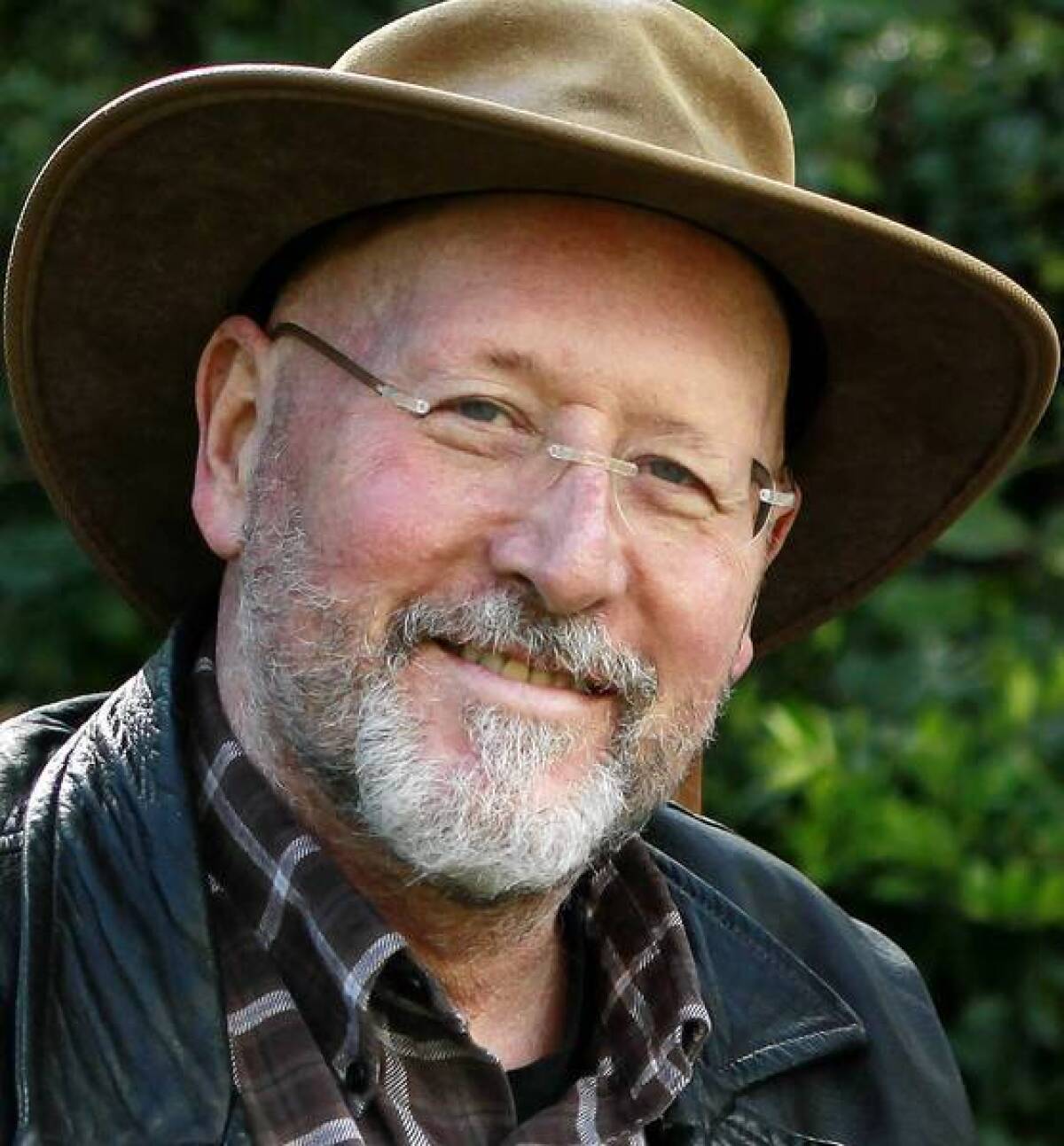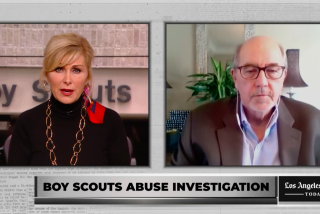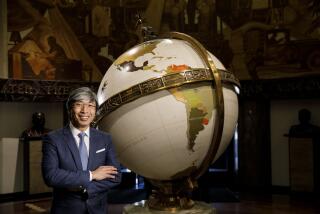Mark Saylor dies at 58; former Times editor oversaw Pulitzer-winning series

Mark Saylor, a former Los Angeles Times editor who oversaw a Pulitzer Prize-winning series of articles on corruption in the entertainment industry, died Friday of cancer at his Pasadena home, his wife said. He was 58.
Saylor, who was also a nationally ranked chess master, was diagnosed with inoperable brain cancer last spring, said his wife, Nora Zamichow, a former Times staff writer.
In 1998, as entertainment editor for The Times’ business section, Saylor worked with reporters Chuck Philips and Michael A. Hiltzik on three major projects over one year: fundraising by the Academy of Recording Arts and Sciences that netted only pennies for its charity; a resurgence of radio station “payola,” or illicit payoffs, for airplay of new recordings; and the preponderance of untested luxury detox programs for wealthy celebrities.
The stories, combined in a single entry, won the 1999 Pulitzer Prize for beat reporting, an award Saylor had called especially satisfying because it honored “aggressive reporting on the hometown industry ... where The Times has long labored under a cloud, the misperception that we’re soft on the entertainment industry.”
Michael Parks, the paper’s top editor from 1997 to 2000, said Saylor was a tough, aggressive editor who was skilled at creating reporting teams, such as Hiltzik and Philips, with disparate personalities and skills.
“He was really quite a smart manager of talent, not necessarily easy on that talent but smart at getting what needed to be gotten from them,” Parks said. “This series really mattered, not just because it is our home industry but because this industry’s values are transmitted to society in so many ways.”
Although the investigation’s powerful targets pushed back before publication, Saylor was unfazed, Hiltzik said: “It’s key in this business that you have confidence that those you’re working for are taking care of you, and we did. He knew as much about the story as we did.”
Saylor, who earned a bachelor’s degree from Harvard University, joined The Times in 1985. He was assistant city editor and then city editor of the now-defunct San Diego edition, then served as California political editor for several years before joining the business news staff in 1995.
In 2000 he left The Times to work for Key3Media Events, which produced technology trade shows, then for the crisis PR firm Sitrick & Co. In 2007 he started his own firm, the Saylor Company, which specialized in international crisis communications and litigation work and counted Dubai and two breakaway Georgian republics among its clients.
Born in Wellsville, N.Y., on March 19, 1954, Mark Julian Saylor was the second of three children of Naomi and Richard Saylor. His father was a composer and music professor whose job meant frequent moves, including a one-year stint in Madras, India, where Mark began studying chess at 15.
At 17, Saylor won the 1972 California Junior Championship in chess and continued to compete throughout his life. In the mid-1990s, his team won the U.S. amateur championship.
Acerbic and opinionated, Saylor loved to compete at everything, those who knew him said.
Saylor’s survivors include his wife; their daughter Zia; three children from a previous marriage, Katherine, Benjamin and Samuel; sister Janine Muscatine; and brother David Saylor.
More to Read
Start your day right
Sign up for Essential California for the L.A. Times biggest news, features and recommendations in your inbox six days a week.
You may occasionally receive promotional content from the Los Angeles Times.






